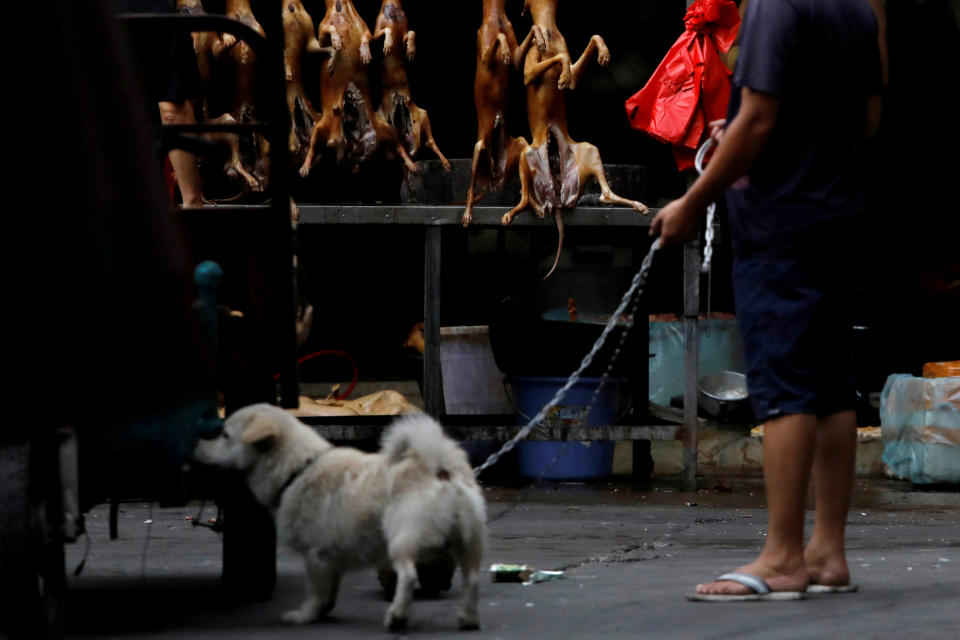China's 'game-changing' decision amid coronavirus pandemic
China has drawn up new guidelines to reclassify dogs as pets rather than livestock, part of a response to the coronavirus outbreak that the Humane Society calls a potential "game changer" in animal welfare.
Though dog meat remains a delicacy in many regions, the Ministry of Agriculture said in a notice published this week that dogs would no longer be considered as livestock.
It uses that designation for animals that can be bred to provide food, milk, fur, fibre and medicine, or to serve the needs of sports or the military.
"As far as dogs are concerned, along with the progress of human civilisation and the public concern and love for animal protection, dogs have been 'specialised' to become companion animals, and internationally are not considered to be livestock, and they will not be regulated as livestock in China," it said.

The coronavirus is widely believed to have originated in horseshoe bats, and could have been passed onto humans by intermediary species on sale in the markets of the city of Wuhan, where the pathogen was first identified.
China subsequently banned the breeding, trading and consumption of wildlife, and revoked all existing licences. It has also promised to revise legislation to make the ban permanent.
The draft guidelines published on Wednesday, which have been opened to the public for consultation, listed 18 traditional livestock species - including cattle, pigs, poultry and camels.
It also added 13 "special" species that would also be exempt from wild animal trading restrictions, including reindeer, alpaca, pheasants, ostriches and foxes.
Dog consumption has become increasingly unpopular in China, and the southern city of Shenzhen became the first to ban it last month.

However, the Humane Society International, an animal welfare group, estimated that around 10 million dogs a year are still killed in China for meat, including stolen pets. The city of Yulin in the region of Guangxi holds an annual dog meat festival in June.
"This draft proposal could signal a game-changer moment for animal protection in China," said Wendy Higgins, a Humane Society International spokeswoman.


